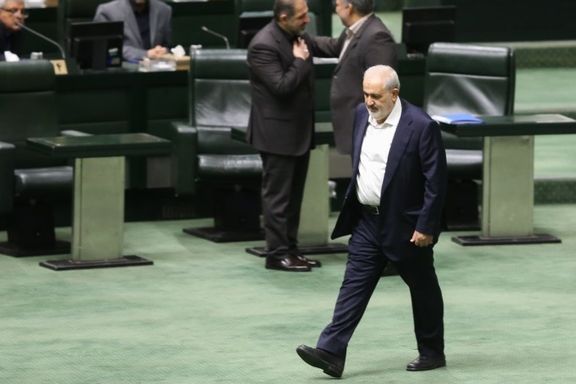Energy crisis dominates Pezeshkian's cabinet hearings

The pressing issue of the energy crisis, which has reached a tipping point, took center stage in the Wednesday parliamentary hearings for President Masoud Pezeshkian's cabinet approval.

The pressing issue of the energy crisis, which has reached a tipping point, took center stage in the Wednesday parliamentary hearings for President Masoud Pezeshkian's cabinet approval.
Lawmaker Hamidreza Goudarzi described the ongoing energy shortfall and frequent water and electricity outages as a "critical crisis for the Islamic Republic." He warned that this issue is on the verge of inflicting serious damage on the industrial sector and further fueling public discontent.
Mansour Alimardani, the representative from Abhar, referred to the frequent power outages in industrial zones, "The power cuts have devastated many industrialists."
The main reason for lack of power in a country that has the second largest natural gas reserves in the world is lack of investments and inefficiency in management. Iran is deprived of foreign investments due to its confrontational foreign policy and a nuclear program deemed dangerous by many countries. The government also fails to invest in infrastructure, prioritizing the military and foreign adventures.
MP Mohsen Biglari observed, "Throughout this sweltering summer, we have endured consistent household power outages, with agricultural electricity being disrupted for five to six hours daily. Given these circumstances, can we genuinely expect a surge in agricultural production? Furthermore, 40% of our villages lack access to household water supply networks; even among those connected, more than half rely on severely outdated plumbing systems."
Abbas Aliabadi, the proposed Minister of Energy, also identified electricity and water shortages as a fundamental governance issue, asserting that it transcends the mere effects of seasonal heat. He projected that, based on current estimates, the annual shortfall in electricity could surpass 18,000 megawatts.
Aliabadi also highlighted that the National Development Fund has deprioritized investments in the electricity sector, noting that the Ministry of Energy's accumulated obligations have led to significant losses for previous investors, deterring new investments.
The ministerial nominee opposed the "burdensome government bureaucracy," underscoring that "the government should not, and cannot, serve as the primary executor."
On the issue of water, Aliabadi pointed out that the current negative water balance stands at six billion cubic meters annually. He issued a stern warning: "The water situation is critical. We are at a tipping point, and continuing this trajectory is untenable."
Despite the discussions, no substantive solutions were proposed. The only measure presented as a remedy was Aliabadi’s pledge to "empower citizens to sell their electricity quotas in a competitive market." He explained that individuals would have the option to either consume their electricity or sell it at premium international or industrial rates, thereby realizing the true value of their assets. However, this presupposes a reliable supply of electricity—a currently unmet condition.
In recent years, the Islamic government has consistently struggled to meet the nation's electricity demands, with recurrent failures plunging hundreds of cities and villages into darkness each summer. This year, however, the situation has reached a critical inflection point, as the frequency and duration of blackouts have escalated, reflecting an increasingly stark disparity between supply and demand.